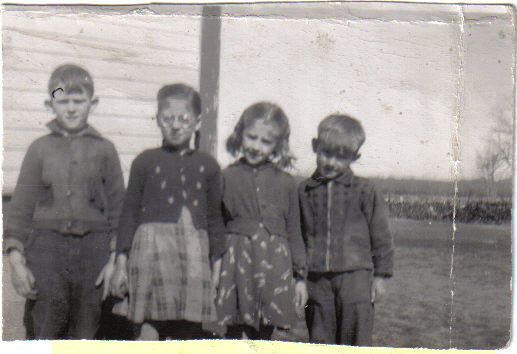COLUMN: Tales from the Gravel Ridge – Various means of communication then and now
Advertisement
Canadians are well acquainted with the use of a telephone. Although there are individuals who, for one reason or another may not have access to a telephone, those numbers in our current circumstances are very few. Generally speaking, we have ready access to a telephone. In fact, individuals in today’s society commonly own a cell phone, and so do their family members, including young children. All this to say, we can scarcely imagine a world without access to a telephone. That wasn’t always the case.
The use of the telephone as a means of communication when I grew up in Rosengard, was decidedly limited. Our family did not have a telephone throughout the years that we lived in that community. We managed quite well without one, and so did most of our neighbours, certainly during the 1940s. I think that was also the case throughout the 1950s.
That is not to say that Manitoba did not have a functioning telephone system long before most of the people of Rosengard had tapped into it. Linda Wall, daughter of Cornelius Unger Klassen, speaks fondly of her father, who was known as “Telephone Klassen” or something like “Telephon Klose” in Mennonite Low German. A plaque, located in a small park in Steinbach, commemorates Mr. Klassen’s enormous contributions in innovations relating to telephone matters throughout Southeastern Manitoba. He took over as manager of the Steinbach Telephone System in 1948.

There are, of course, many types of communication other than a telephone. Communicating by means of texting or sending emails, all within the context of the internet, is so commonplace that we have almost, in a sense, become addicted to it. One consequence of this is that children and young people have not developed the capacity, or it might be said, the art of writing cursively, and as a result also the ability to read it. It is virtually incomprehensible to those of us receiving our early formal education in Canada prior to the 21 century, that such could be the case. Think for a minute how much is lost, including the portrayal of the personality of the person writing those tender notes in a greeting card. This lack of ability to read a script written in cursive in the English language, reminds me of handwritten old German script. Before my father, Cornelius H. Falk’s untimely death in 1959, he had undertaken compiling a handwritten genealogical record of the descendents of his paternal grandfather, Jakob Falk, born in 1818 in a Mennonite village in what is now Ukraine. My father’s impeccable writing, not unlike calligraphy, is in its own context analogous to a work of art.
When my father died, I was not old enough to have any serious appreciation for the enormity of my father’s accomplishment in researching and compiling this record, and that with very limited resources. Because I am now more fully aware of the context, and to some degree the content of the material recorded in those more than one hundred pages of family history, I am able to read this priceless document. Indeed, to this day I am able to read old German print script, such as the German Bible my parents gave me when I was a young person. However, I can read handwritten material, such as faded notations on old photographs for example, only with concerted effort.
Most of us have no great desire to go back to those times of a previous era, even if it were an option. What is of utmost importance to my mind is to focus on how we adapt to our present circumstances, taking great care to consider what it is that we cherish and desire to retain, both for ourselves, but also for those who are coming after us. This, of course, includes not only those near and dear to us, but also to the values we cultivate and seek to promote and advance in the minds of all of us.
